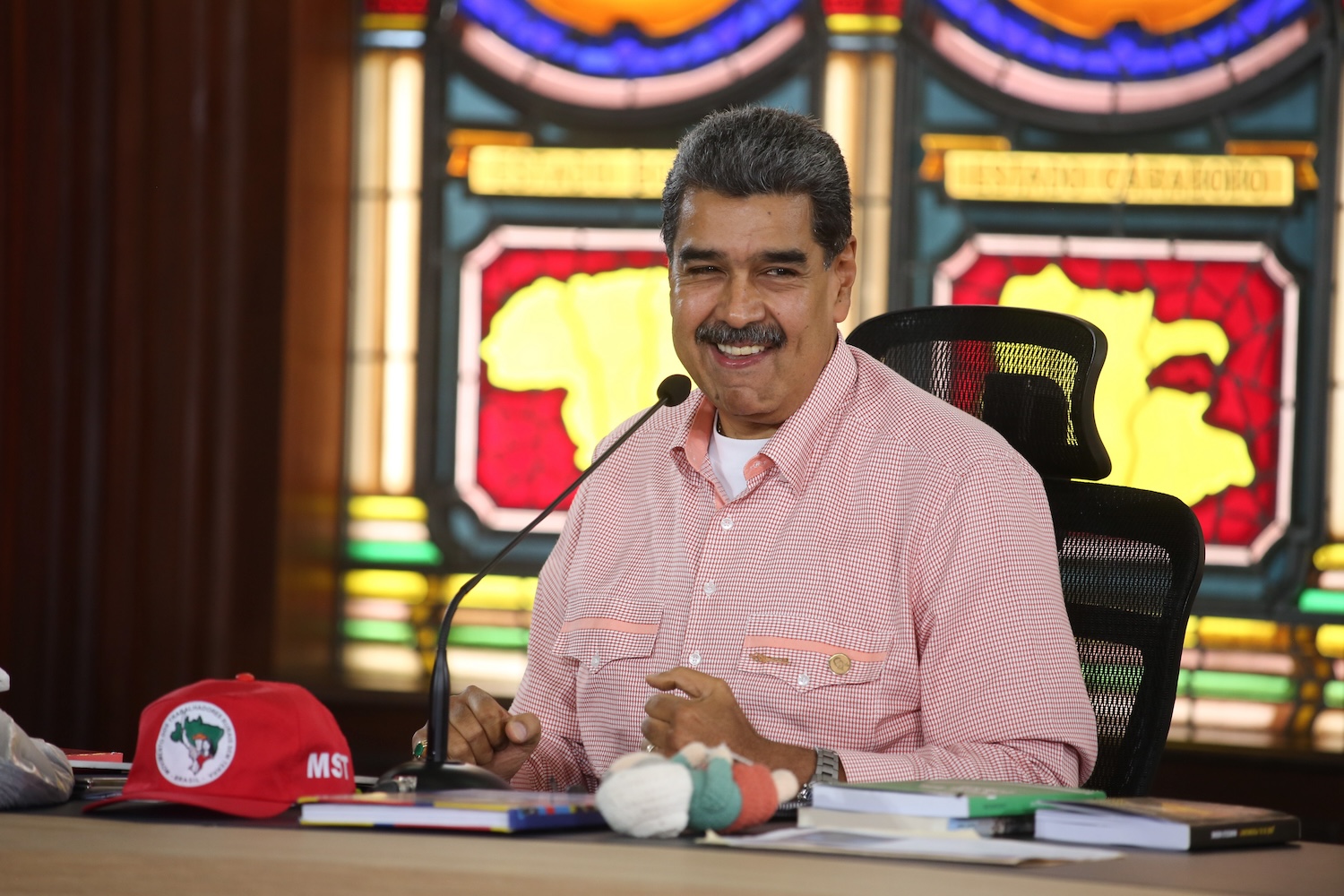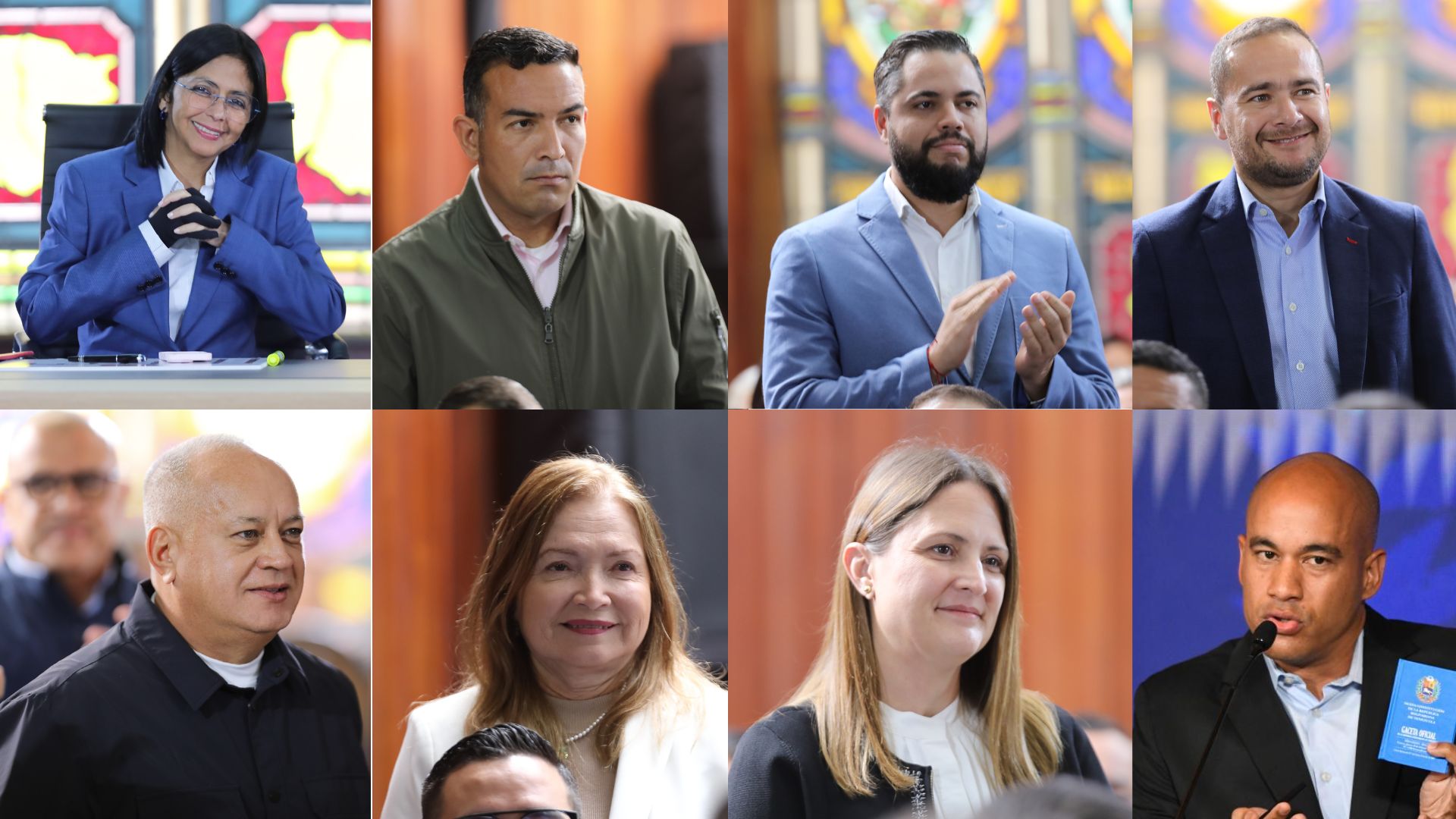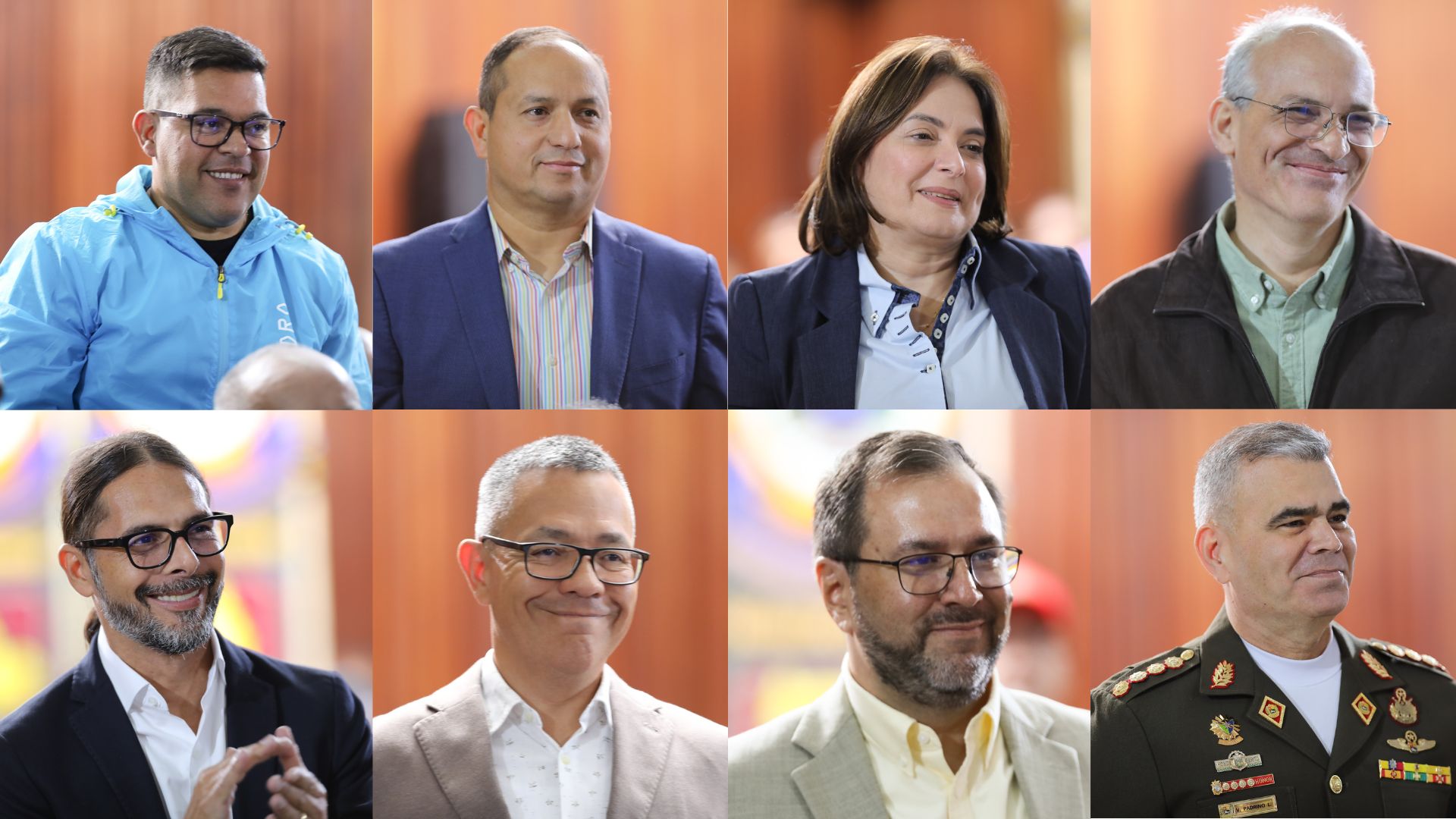Maduro changes half of cabinet of ministers
Victoria Korn
With the dispute over the result of the presidential election of a month ago resolved in the Supreme Court of Justice, re-elected President Nicolás Maduro made an extensive renewal of his ministers. The return of Diosdado Cabello to the cabinet, in the strategic Ministry of the Interior, and new spaces of power for Vice President Delcy Rodríguez stand out.
“We are going to a stage of popular self-government, where there are no airy leaderships and superficial forms of governments and deep changes are concretized,” Maduro said during the announcements of the new ministers. “We are condemned to success, to peace and to win”, he sentenced.

“Integrated team, unified team, in order not to fail, to go to the new stage of transition to socialism,” Maduro said. He proposed a “deep revolution and to break any hint, any element of nonconformity, to go towards the welfare State, we have many tasks”, said Maduro and remarked that “we are facing at this stage a Coup d’Etat, against the whole State, they ignore the laws, the Public Powers”.
Diosdado, “fourth bat”.
One of the most resounding appointments is that of Diosdado Cabello, number two of the United Socialist Party of Venezuela (PSUV) in the strategic Ministry of Interior, Justice and Peace, a position he already held in 2002, after the frustrated coup against Commander Chavez.
“I return to the ministry 22 years later (…) in the midst of the guarimbas, Comandante Chávez appointed me, morning, afternoon and night, opposition sectors began to sound their fascist character, let us remember those marches they made with torches, they looked like the Ku Klux Klan, they closed the streets, they persecuted our people and we were in that battle together with our President Chávez, together with our people and we won at that moment”, recalled Diosdado in front of Maduro, who called him ‘fourth bat’. In baseball jargon, one of the best in the game.

The new ministers also include Héctor Rodríguez, current governor of Miranda State and member of the dialogue commission with the opposition, who returns to the Ministry of Education, a position he held for almost two years in the first government of Nicolás Maduro.
Delcy, with more power
In the new cabinet stands out the executive vice president, Delcy Rodríguez, who has held that position since June 2018 and throughout Maduro’s second term, which began in January 2019. Her ascendancy over the Venezuelan government’s economic issues is evident, and grew especially after the resounding fall of Tareck El Aissami, now detained for a multi-million dollar embezzlement from the public coffers.
Now the Vice-President will take direct control of the Ministry of Petroleum, where the country’s main source of foreign currency is cooked up, and when Petroleos de Venezuela (PDVSA) is about to announce -according to sources familiar with the sector- that more than one million barrels of crude oil are already being produced daily.
Ratified
Among the ministers who remain in their posts are the two most senior members of the cabinet: the Minister of Planning, Ricardo Menéndez and the strategic Minister of Defense, Vladimir Padrino López.
Freddy Ñáñez was also ratified as Minister of Communication and Information, Ernesto Villegas as Minister of Culture, Juan Carlos Loyo as Minister of Fishing and Aquaculture, Héctor Silva as Minister of Mining Development, Carlos Leal Tellería as Minister of Food, and Luis Villegas as Minister of National Commerce.

Among those ratified: Naum Fernández as head of the Capital District; Ramón Velásquez, in Transportation; Gabriela Jiménez in Science and Technology; Ricardo Menéndez, Planning; Freddy Ñañez in Communication; Ernesto Villegas, Culture; Yván GIl in the Ministry of Foreign Affairs and Vladimir Padrino in Defense.
The Minister of Science and Technology Gabriela Jiménez, Minister of Health; Minister of Health Magaly Gutiérrez; Minister of Electric Energy Jorge Márquez, Minister of Transportation Ramón Velásquez Araguayán and the Ministers of Ecosocialism, Josué Lorca and of Penitentiary Regime, Julio García Zerpa will also continue in their posts.
*Venezuelan journalist, analyst of Central American and Caribbean issues, associated with the Latin American Center for Strategic Analysis (CLAE, www.estrategia.la).
